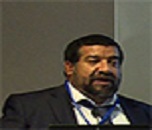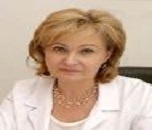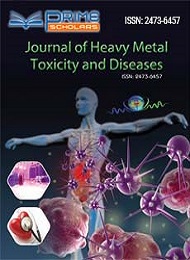Theme: Rare diseases and precision medicine: opportunities and challenges
ORPHAN DRUGS 2023
The 3rd World Congress on Rare Diseases & Orphan Drugs is a premier international event that brings together leading experts and researchers in the field of rare diseases and orphan drugs. The conference is scheduled to take place on September 27-28, 2023, in Amsterdam, Netherlands, and will focus on the theme "Rare diseases and precision medicine: opportunities and challenges." Rare diseases are defined as conditions that affect a small percentage of the population. There are more than 7,000 rare diseases, and they affect more than 400 million people worldwide. These diseases are often difficult to diagnose, and treatments are scarce, which is why they are often referred to as orphan diseases. Precision medicine is a rapidly evolving field that aims to provide personalized treatments based on an individual's unique genetic makeup, environment, and lifestyle. Precision medicine holds great promise for rare diseases as it allows for more targeted and effective therapies.
The 3rd World Congress on Rare Diseases & Orphan Drugs will provide a platform for researchers, clinicians, patients, and industry representatives to exchange ideas, present the latest research, and discuss the challenges and opportunities in the field. The conference will feature keynote speakers, plenary sessions, poster presentations, and panel discussions. Attendees will have the opportunity to network with peers, learn about the latest research and developments, and contribute to the advancement of the field.
Amsterdam, the capital city of the Netherlands, is a vibrant and multicultural city that is known for its rich history, beautiful architecture, and world-renowned museums. The city is easily accessible by air, train, and car, making it an ideal location for an international conference.
Overall, the 3rd World Congress on Rare Diseases & Orphan Drugs promises to be an exciting and informative event that will advance our understanding of rare diseases and orphan drugs and pave the way for new and innovative treatments.
Session on: Advancements in the Diagnosis of Rare Diseases
Recent advancements in medical technology, such as genetic testing and next-generation sequencing, have significantly improved the diagnosis of rare diseases. These technologies can identify changes in an individual's DNA that may be responsible for causing a rare disease and provide valuable information about the genetic mutations underlying rare diseases. Additionally, new imaging technologies, such as MRI and CT scans, provide doctors with a more detailed view of the body's internal structures and can help diagnose rare diseases more accurately. These advancements have improved the accuracy and reduced the time it takes to diagnose rare diseases, allowing people to receive appropriate treatment and care much earlier, improving their quality of life and overall prognosis.
Session on: Clinical Trial Design for Orphan Drugs: Unique Challenges and Solutions
Clinical trial design for orphan drugs presents unique challenges due to the small patient populations and limited data available. One of the key challenges is identifying and recruiting enough eligible patients for the trial. In addition, determining the appropriate endpoints and outcome measures can be difficult, as the natural history of the disease may not be well understood. Solutions to these challenges include the use of adaptive trial designs, innovative statistical methods, and collaboration between multiple stakeholders, including patient advocacy groups and regulatory agencies. Furthermore, the use of surrogate endpoints and patient-reported outcomes can provide valuable information when traditional endpoints are not feasible. Overall, successful clinical trial design for orphan drugs requires a tailored and collaborative approach that addresses the unique challenges faced in this field.
Session on: Novel Approaches to Drug Discovery for Rare Diseases
Drug discovery for rare diseases presents unique challenges due to the limited understanding of the underlying biology and small patient populations. Novel approaches, such as repurposing existing drugs, high-throughput screening, and the use of artificial intelligence and machine learning, are being explored to accelerate the drug discovery process. Repurposing existing drugs can save time and resources by utilizing drugs already approved for other indications. High-throughput screening can rapidly identify potential drug candidates. Artificial intelligence and machine learning can aid in identifying drug targets and predicting drug efficacy. These approaches have the potential to increase the efficiency and success rates of drug discovery for rare diseases, ultimately leading to better treatment options for patients.
Session on: Patient-Centered Research in Rare Diseases
Patient-centered research in rare diseases prioritizes the needs and perspectives of patients and their families. This approach involves engaging patients in all aspects of research, from study design to dissemination of results. It also aims to address the unique challenges faced by patients with rare diseases, including limited access to care and lack of effective treatments. Patient-centered research can improve the accuracy and relevance of research, ensure that patient perspectives are considered, and enhance patient engagement in the research process. Ultimately, this approach can lead to better outcomes for patients with rare diseases and help to advance our understanding of these complex conditions.
Session on: Genetic Testing and Counseling for Rare Diseases
Genetic testing and counseling play a critical role in the diagnosis and management of rare diseases. Genetic testing can identify changes in an individual's DNA that may be responsible for causing a rare disease, allowing for early diagnosis and treatment. Counseling provides patients and their families with information about the genetic basis of the disease, its inheritance pattern, and the risks and benefits of genetic testing. It also offers support and guidance in making decisions about genetic testing and family planning. Genetic testing and counseling can improve patient outcomes by providing information for early intervention and management of rare diseases and empowering patients and families to make informed decisions about their healthcare.
Session on: Rare Diseases and the Health Care System: Access and Coverage Challenges
Rare diseases pose significant challenges to the health care system, particularly in terms of access and coverage. Due to the small patient populations, developing effective treatments can be costly, and patients often face barriers to accessing care. Insurance coverage can be limited, with many rare diseases not covered under standard policies. Patients may also struggle to find specialists with expertise in their condition, leading to delays in diagnosis and treatment. Patient advocacy groups play a critical role in advocating for increased access to care and coverage for rare diseases. Addressing these challenges is critical to improving outcomes for patients with rare diseases and ensuring that they receive the care and support they need.
Session on: The Role of Patient Advocacy Groups in Rare Disease Research
Patient advocacy groups play a critical role in rare disease research by advocating for patients and their families, raising awareness, and providing support. These groups facilitate communication between patients, researchers, and healthcare professionals, and help to prioritize research efforts based on the needs of the patient community. They also provide funding for research, host patient registries and biobanks, and advocate for policy changes to improve access to care and treatments. By amplifying the patient voice and driving research efforts, patient advocacy groups are essential in advancing our understanding of rare diseases and developing effective treatments for these complex conditions.
Session on: Biomarkers for Rare Disease Diagnosis and Treatment
Biomarkers are crucial in the diagnosis and treatment of rare diseases, providing objective measures to assess disease progression and response to treatment. They can also be used to identify patients who may benefit from specific treatments, and to predict treatment outcomes. In rare diseases, where symptoms and progression can vary widely, biomarkers can aid in the accurate diagnosis and monitoring of the disease. Additionally, biomarkers can help in the development of new treatments by providing information on disease mechanisms and potential targets for intervention. As such, biomarkers play a critical role in the advancement of rare disease research and the development of effective treatments for patients.
Session on: Emerging Technologies in Rare Disease Research
Emerging technologies are transforming rare disease research, providing new tools for diagnosis, treatment, and management. One example is gene therapy, which can deliver corrected genetic material to cells and tissues, potentially curing genetic diseases. CRISPR-Cas9 technology has also revolutionized gene editing, allowing for precise modifications to DNA sequences. Additionally, advances in single-cell sequencing, artificial intelligence, and machine learning are providing new insights into the underlying mechanisms of rare diseases, leading to the identification of new targets for drug development. These emerging technologies have the potential to significantly improve patient outcomes in the future, offering hope for those affected by rare diseases.
Session on: Regulatory Considerations for Developing Orphan Drugs
Developing orphan drugs for rare diseases presents unique regulatory challenges due to the small patient populations and limited clinical trial data. The Orphan Drug Act provides incentives to encourage the development of drugs for rare diseases, including tax credits, grant funding, and exclusivity periods. Additionally, the FDA has established special regulatory pathways for the development and approval of orphan drugs, including the fast track, breakthrough therapy, and accelerated approval programs. These pathways prioritize patient needs and expedite the approval process, while still maintaining rigorous safety and efficacy standards. Navigating these regulatory considerations is critical to the successful development and approval of orphan drugs, ultimately leading to better treatment options for patients with rare diseases.
Session on: Translational Medicine for Rare Diseases: From Bench to Bedside
Translational medicine is an important approach to developing new treatments for rare diseases. This process involves the application of scientific research findings from the laboratory (bench) to clinical practice (bedside). In the context of rare diseases, translational medicine is particularly important because of the limited understanding of these conditions and the lack of effective treatments. Translational medicine involves collaboration between basic researchers, clinicians, and industry partners, with the ultimate goal of developing safe and effective therapies for patients with rare diseases. This approach holds great promise for advancing rare disease research and improving patient outcomes.
Session on: Addressing Health Disparities in Rare Diseases
Health disparities exist in rare diseases, with certain populations being disproportionately affected due to social, economic, and cultural factors. For example, individuals from low-income backgrounds may have difficulty accessing care and treatment for rare diseases, and minority populations may have higher rates of certain rare diseases. Addressing health disparities in rare diseases requires a multi-faceted approach, including increasing awareness, improving access to care and treatments, and addressing social determinants of health. Engaging with patient communities and promoting diversity in clinical research is also critical to ensuring that treatments are effective and equitable for all patients with rare diseases.
Session on: Multi-Stakeholder Collaborations in Rare Disease Research and Development
Multi-stakeholder collaborations are essential in advancing rare disease research and development. These collaborations bring together patients, researchers, healthcare professionals, industry partners, and regulatory agencies to address the complex challenges of developing treatments for rare diseases. By pooling resources, expertise, and knowledge, multi-stakeholder collaborations can accelerate research and improve outcomes for patients with rare diseases. Collaborative efforts can involve sharing data, creating patient registries, and establishing partnerships to develop new treatments. By working together, stakeholders can drive progress in rare disease research and development, ultimately leading to improved diagnosis, treatment, and quality of life for patients.
Session on: Pediatric Rare Diseases: Challenges in Diagnosis and Treatment
Pediatric rare diseases present unique challenges in diagnosis and treatment. Symptoms of rare diseases in children can be difficult to identify and may mimic other more common conditions. In addition, pediatric rare diseases often have a genetic basis and can be more severe and progressive than adult-onset rare diseases. Treatment options for pediatric rare diseases are limited, and clinical trials may be difficult to conduct due to the small patient populations. Collaboration between pediatric specialists, geneticists, and researchers is critical to improving the diagnosis and treatment of pediatric rare diseases. Additionally, regulatory agencies must consider the unique challenges of developing treatments for children with rare diseases to ensure that safe and effective treatments are available.
Session on: Orphan Drug Pricing and Reimbursement Strategies
Orphan drugs for rare diseases are often expensive due to the high cost of research and development and the small patient populations they serve. Pricing and reimbursement strategies for orphan drugs must balance the need to recoup development costs with ensuring access for patients. Governments and payers have implemented various strategies, such as price controls, discounts, and value-based pricing, to manage the cost of orphan drugs. Additionally, patient assistance programs, such as copay assistance and free drug programs, help ensure that patients can access treatments. Balancing affordability and access to treatments for patients with rare diseases remains an ongoing challenge for policymakers and stakeholders.
Session on: New Therapeutic Approaches for Rare Cancers
New therapeutic approaches for rare cancers are needed due to the limited treatment options currently available. Advances in precision medicine, immunotherapy, and targeted therapies have shown promise in treating rare cancers. Precision medicine uses genomic profiling to identify specific genetic mutations that drive cancer growth, allowing for personalized treatments. Immunotherapy enhances the body's immune response to cancer cells, while targeted therapies block specific molecules that contribute to cancer growth. Clinical trials for new therapies are essential for advancing treatment options for rare cancers. Collaboration between researchers, healthcare providers, and patient advocacy groups is critical for improving outcomes for patients with rare cancers.
Session on: The Role of Artificial Intelligence in Rare Disease Research
Artificial intelligence (AI) has the potential to revolutionize rare disease research by accelerating diagnosis, drug discovery, and personalized treatments. AI algorithms can analyze large amounts of data, including genetic data, imaging, and clinical records, to identify patterns and potential disease associations. This technology can help clinicians diagnose rare diseases earlier, predict disease progression, and develop targeted treatments. AI can also streamline drug discovery by identifying potential drug targets and predicting drug efficacy. Collaborations between AI companies, researchers, and patient advocacy groups are essential to leverage this technology's potential for rare disease research. However, ensuring ethical and transparent use of AI is critical to maintaining patient trust and advancing research.
Session on: Preclinical Studies for Orphan Drug Development
Preclinical studies are a critical step in the development of orphan drugs. These studies involve testing drug candidates in animal models to assess their safety, efficacy, and pharmacokinetics. Preclinical studies can provide valuable data to inform clinical trial design and drug dosing. Regulatory agencies require preclinical data to support clinical trial applications for orphan drugs. The small patient populations of rare diseases make preclinical studies even more critical as they help identify potential safety concerns early in the development process. Collaboration between researchers, patient advocacy groups, and regulatory agencies is necessary to ensure that preclinical studies are conducted ethically and efficiently and that orphan drugs can move from preclinical studies to clinical trials as quickly as possible.
Session on: Rare Disease Clinical Trials: Recruitment and Retention Strategies
Recruiting and retaining participants in clinical trials for rare diseases can be challenging due to the limited number of eligible patients and the burden of participation. Patient advocacy groups play a critical role in helping researchers identify and recruit eligible patients. Social media and online platforms can also be effective tools for reaching patients and raising awareness of clinical trials. Incentives, such as travel reimbursements and access to free treatment, can also help retain participants in trials. Providing clear and regular communication with participants and their families about the trial's progress and results is essential to maintaining engagement and trust. Collaboration between researchers, healthcare providers, patient advocacy groups, and patients is necessary to overcome recruitment and retention challenges and advance rare disease research.
Session on: Patient-Focused Outcomes in Rare Disease Research
Patient-focused outcomes are critical in rare disease research to assess the impact of interventions on patients' quality of life. Traditional clinical outcomes, such as survival rates and disease progression, may not capture the full extent of the impact of rare diseases on patients' daily lives. Patient-reported outcomes, such as symptom burden and functional status, can provide valuable information on the efficacy of treatments and the disease's impact on patients. Engaging with patients and their families to identify meaningful outcomes and incorporating patient-reported outcomes into clinical trial design and regulatory decision-making is essential. Collaboration between researchers, healthcare providers, and patient advocacy groups is critical to advancing patient-focused outcomes in rare disease research.
The abstract submission process for the 3rd World Congress on Rare Diseases & Orphan Drugs is now open, and we cordially invite all interested speakers to submit their abstracts. Abstracts can be submitted online at Speaker abstract or via email to contact@europeanmeets.com.
Please note that all abstracts must adhere to the following terms: abstracts must not have been presented elsewhere (except as a thesis) and must not currently be under consideration by another conference. The submitting speaker must also ensure that all co-authors have approved the abstract publication. Abstracts can be presented in two modes: oral or poster presentation. All abstracts must be written exclusively in English, including the title, abstract text, author names, and affiliations.
When submitting your abstract, please provide the following information: presenting author's contact details, including full mailing address, office phone number, email address, and fax number; name(s) of presenting author and co-authors, including first name(s) or initials of first name(s) and family name (e.g. Jason Wong or J. Wong); and affiliation details of all authors, including department, institution/hospital, city, state (if relevant), and country.
The abstract submission process is a crucial step in the selection process for this congress. We encourage all interested speakers to submit their abstracts and take the opportunity to present their research to an international audience. We look forward to receiving your submissions and welcoming you to the 3rd World Congress on Rare Diseases & Orphan Drugs.
The 3rd World Congress on Rare Diseases & Orphan Drugs is a unique opportunity to showcase your products and services to a global audience. As a sponsor or exhibitor, you will have the chance to connect with researchers, clinicians, and key opinion leaders in the field of rare diseases and orphan drugs.
The congress will take place on September 27-28, 2023 in Amsterdam, Netherlands, and will bring together experts from around the world to share their latest research and insights into the diagnosis, treatment, and management of rare diseases and orphan drugs.
As a sponsor, you will receive high visibility and recognition through various channels, including event signage, conference website, and marketing materials. You will also have the opportunity to present your products and services to attendees during the exhibition period, which is a prime time for networking and generating leads.
Exhibitors will have the chance to showcase their products and services to a global audience, network with other professionals, and gain valuable insights into the latest trends and developments in the field of rare diseases and orphan drugs. Exhibitors will receive a dedicated space to showcase their products and services and will also have the opportunity to participate in the congress program, including poster presentations and workshops.
The congress will cover a wide range of topics, including genetic and molecular basis of rare diseases, rare disease diagnosis and management, clinical trials and drug development, and patient engagement and advocacy. This provides a unique opportunity for sponsors and exhibitors to showcase their products and services to a highly engaged and knowledgeable audience.
Join us as a sponsor or exhibitor for the 3rd World Congress on Rare Diseases & Orphan Drugs and take advantage of this unique opportunity to connect with key stakeholders in the field of rare diseases and orphan drugs. Contact us today to learn more about sponsorship and exhibition opportunities.
Rare diseases, also known as orphan diseases, are diseases that affect a small percentage of the population. In the United States, a rare disease is defined as a condition that affects fewer than 200,000 people. In Europe, a rare disease is defined as one that affects fewer than 1 in 2,000 people. Orphan drugs are pharmaceuticals that are used to treat rare diseases. Due to the limited patient population, developing drugs for rare diseases can be challenging and costly. As a result, governments around the world have implemented various incentives to encourage the development of orphan drugs, such as tax credits, grants, and regulatory assistance. According to a report by EvaluatePharma, the global orphan drug market is expected to reach $262 billion by 2026, with a compound annual growth rate of 12.1% from 2019 to 2026. This growth is driven by factors such as an increasing prevalence of rare diseases, an aging population, and advances in technology and research.
In terms of geographic regions, North America and Europe are the largest markets for orphan drugs, accounting for over 80% of global sales. However, other regions such as Asia-Pacific and Latin America are expected to experience significant growth in the coming years due to improving healthcare infrastructure and rising awareness of rare diseases. The orphan drug market is expected to continue growing at a significant rate due to various factors. However, the development of drugs for rare diseases remains a complex and challenging process, and further research and development are needed to meet the needs of patients with rare diseases.
Conference Highlights
- Advancements in the Diagnosis of Rare Diseases
- Clinical Trial Design for Orphan Drugs: Unique Challenges and Solutions
- Novel Approaches to Drug Discovery for Rare Diseases
- Patient-Centered Research in Rare Diseases
- Genetic Testing and Counseling for Rare Diseases
- Rare Diseases and the Health Care System: Access and Coverage Challenges
- The Role of Patient Advocacy Groups in Rare Disease Research
- Biomarkers for Rare Disease Diagnosis and Treatment
- Emerging Technologies in Rare Disease Research
- Regulatory Considerations for Developing Orphan Drugs
- Translational Medicine for Rare Diseases: From Bench to Bedside
- Addressing Health Disparities in Rare Diseases
- Multi-Stakeholder Collaborations in Rare Disease Research and Development
- Pediatric Rare Diseases: Challenges in Diagnosis and Treatment
- Orphan Drug Pricing and Reimbursement Strategies
- New Therapeutic Approaches for Rare Cancers
- The Role of Artificial Intelligence in Rare Disease Research
- Preclinical Studies for Orphan Drug Development
- Rare Disease Clinical Trials: Recruitment and Retention Strategies
- Patient-Focused Outcomes in Rare Disease Research
To share your views and research, please click here to register for the Conference.
To Collaborate Scientific Professionals around the World
| Conference Date | September 27-28, 2023 | ||
| Sponsors & Exhibitors |
|
||
| Speaker Opportunity Closed | |||
| Poster Opportunity Closed | Click Here to View | ||
Useful Links
Special Issues
All accepted abstracts will be published in respective Our International Journals.
Abstracts will be provided with Digital Object Identifier by










